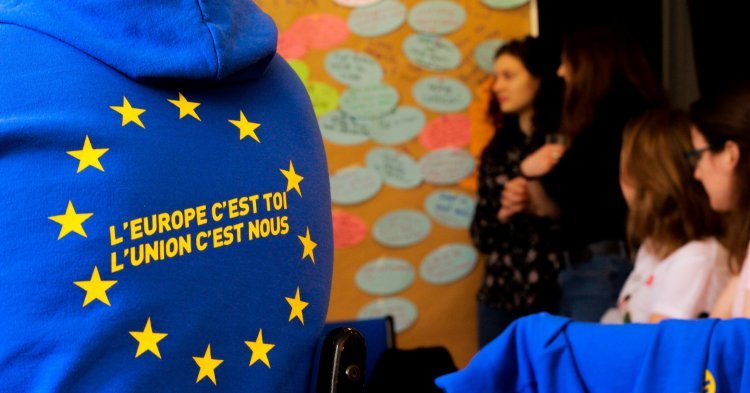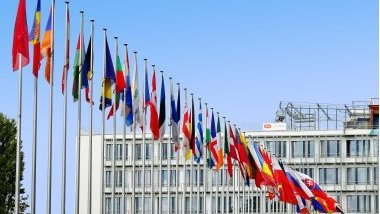Whether one can be persuaded to feel a certain way by force of a rational argument is something for psychologists to study. At any rate, how powerful the argument is does have a practical impact, as political decision-makers debate how much they should spend on programmes intended to strengthen the sense of European citizenship. Different people will have different answers – this summer on The New Federalist, Tom Sutton talked about how feeling European helped him see a young German “as a friend and an equal”, not as an enemy like his ancestors might have. At the panel discussion, my answer was rather based on the logic of political cooperation and interdependence.
Discomfort or Europe?
Whether or not you tear up when gazing at an EU flag proudly flying against blue skies, you can accept that there are many problems that face us all as Europeans. Consequently, it makes sense to sit down together as Europeans to find solutions. Now, if you don’t feel European, you have two options, both of which seem miserable.
On the one hand, you can suffer in isolation. ‘Brexit Britain’ is a convenient illustration of what this can mean in practice. At worst, it can mean stockpiling of food and dried beans for dinner, as well as many other things that grim Brexit prognoses have been discussing for two years now.
On the other hand, you can enjoy the aroma of fresh food and continue to work with others for common solutions, even if you don’t feel European. That situation also risks leaving you with a bitter aftertaste, however. You will effectively be stuck working with strangers whom you will never be able to trust like ‘your own people’. You will depend on people you would rather live without if only you could. When you work ‘with your own people’ and you don’t get your way, you can live with it. In European tables – where you will, by necessity, be sitting frequently – you can’t enjoy the same peace of mind, but instead you will be consumed by an overpowering will to rage against the injustice of “someone else” winning out. In a word, you will never truly be at peace with yourself.
The way out of this miserable choice between two evils is to feel European. By feeling European, you reap the benefits of cooperation and what’s more, it truly feels like cooperation in the common interest. You can both enjoy the glorious taste of fresh tomatoes and meet your colleagues without hiding a dagger in the pouch. Perhaps you can even take pleasure in being ‘united in diversity’ with people whose life experience complements yours, and who you feel attached to in an inexplicable, silent, abstract way.
If you can’t force yourself, help others
Feeling a certain way doesn’t necessarily happen as a conscious choice at the snap of a finger. For most, the feeling comes by itself through exchange and social interaction with others. What you can do yourself, if you think it may improve your life quality, is to willfully put yourself in situations where you open yourself up to a person you can relate to as a fellow European.
What you can do for the wider community is to help ensure that others won’t be faced with the unpleasant dilemma of the “non-European”. Show your support for mobility programmes, encourage your children to seize the opportunities on offer for them, ask your children’s teacher if it would be possible to sign their school up for an Erasmus+ project. None of these things require you to feel sentimental about the EU, but they’re all a favour to others and, dare I say, the common good.




Follow the comments: |
|
